-
Make Good: the Post Office scandal musical
 Read More…: Make Good: the Post Office scandal musical
Read More…: Make Good: the Post Office scandal musicalThe third theatrical production concerning the Post Office scandal came to London yesterday. Make Good played to a sold-out Omnibus Theatre in Clapham. The production is put together by a theatre company called Pentabus, with a script from Jeanie O’Hare and music and lyrics by Jim Fortune. Both write in the programme: “This project began with the human impact statements from the Inquiry, followed by a lot of legal and computer stuff. Then when we felt we knew what questions to ask, we spoke to ex Subpostmistress Rubbina Shaheen in Pentabus home county of Shropshire. Her generosity in sharing her…
-
Chisholm: helping Paula Vennells fail upwards
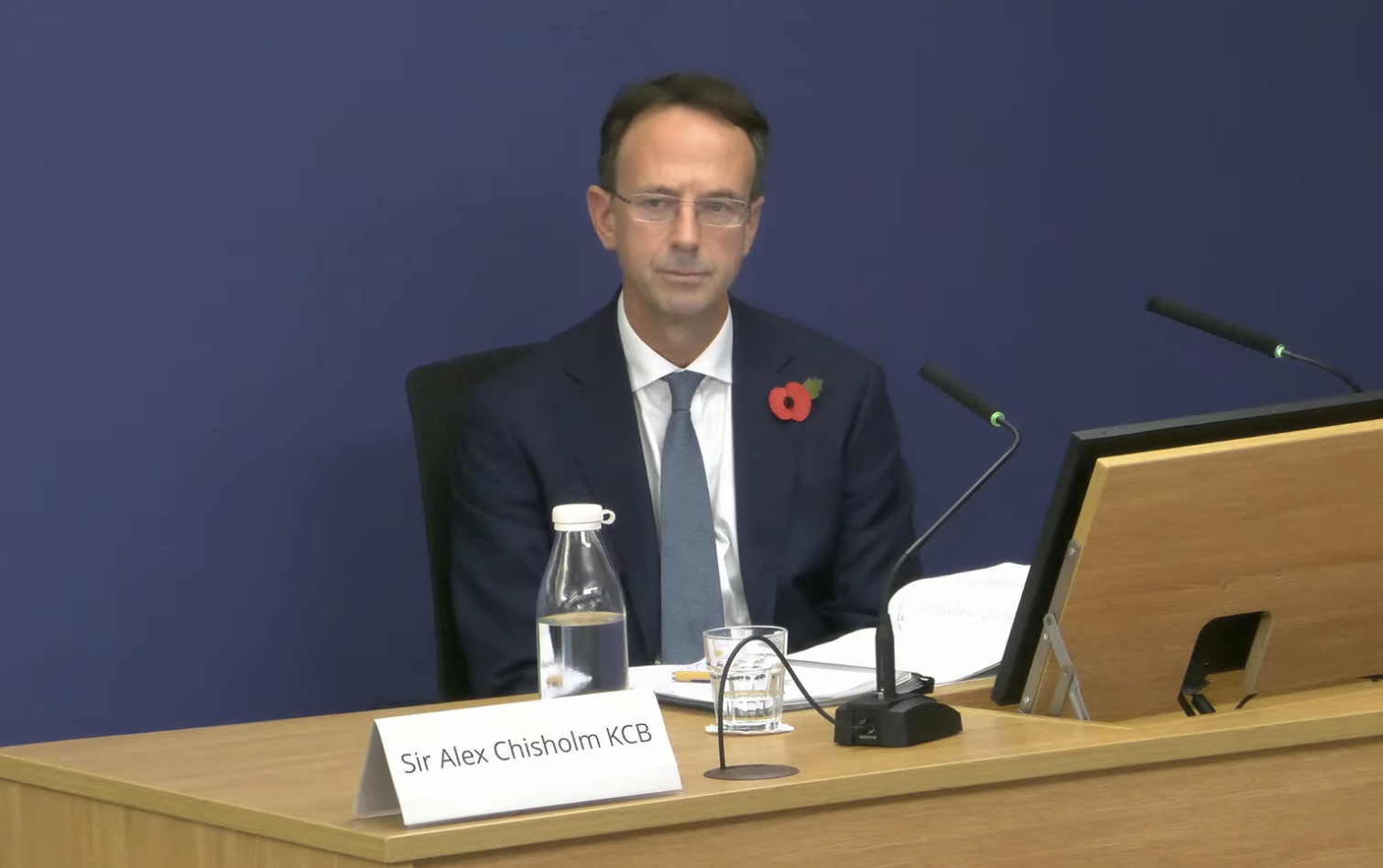 Read More…: Chisholm: helping Paula Vennells fail upwards
Read More…: Chisholm: helping Paula Vennells fail upwardsSir Alex Chisholm KCB was one of the most powerful government civil servants during a crucial phase of the Post Office scandal, and to nerds like me, his evidence was always going to be of some interest. Chisholm made it quite clear (watch it here) he was crawling all over the Post Office’s disastrous defence to the Bates v Post Office group litigation, but that every duff decision was its to make alone. “I was very clear in my advice to the Secretary of State”, Chisholm told the Inquiry, “that the department need to be a neutral party in relation to…
-
Hollinrake’s legacy: Postmasters dying without full redress
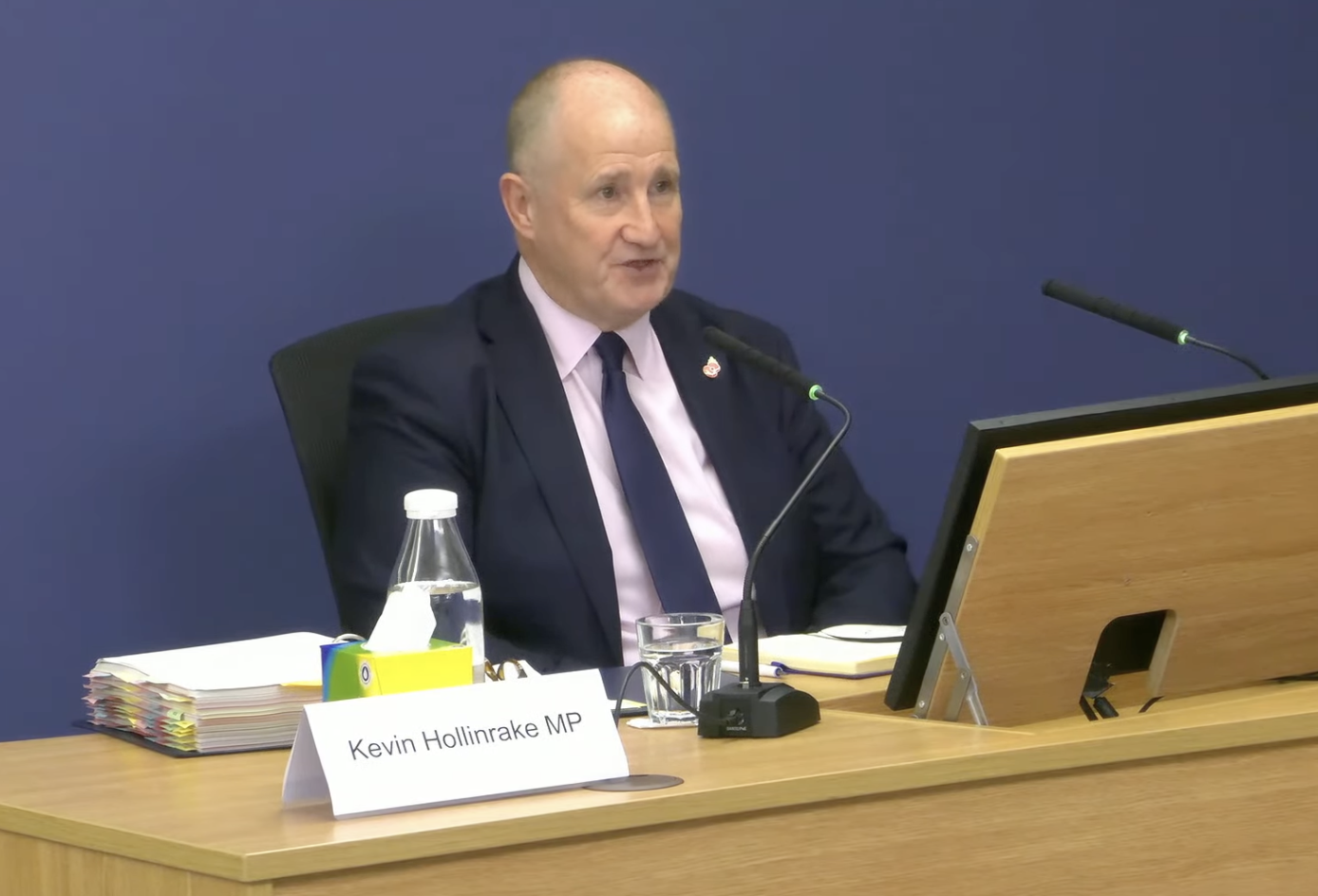 Read More…: Hollinrake’s legacy: Postmasters dying without full redress
Read More…: Hollinrake’s legacy: Postmasters dying without full redressThe day began with a tolling of the metaphorical bell. Before the former Post Office minister Kevin Hollinrake gave evidence, the chair of the Post Office Inquiry, Sir Wyn Williams, told us that another former Subpostmaster has died, again without receiving full and final compensation. Her name was Carol Riddell. She was the Subpostmaster at East Bolden, near Sunderland, between 1992 and 2000. Sir Wyn told the Inquiry: “During her time as sub-postmistress, Mrs Riddell had to contend with a very serious armed robbery at her post office, during the course of which she was blinded by having acid thrown…
-
Recaldin: Post Office remediation is “Shot to Pieces”
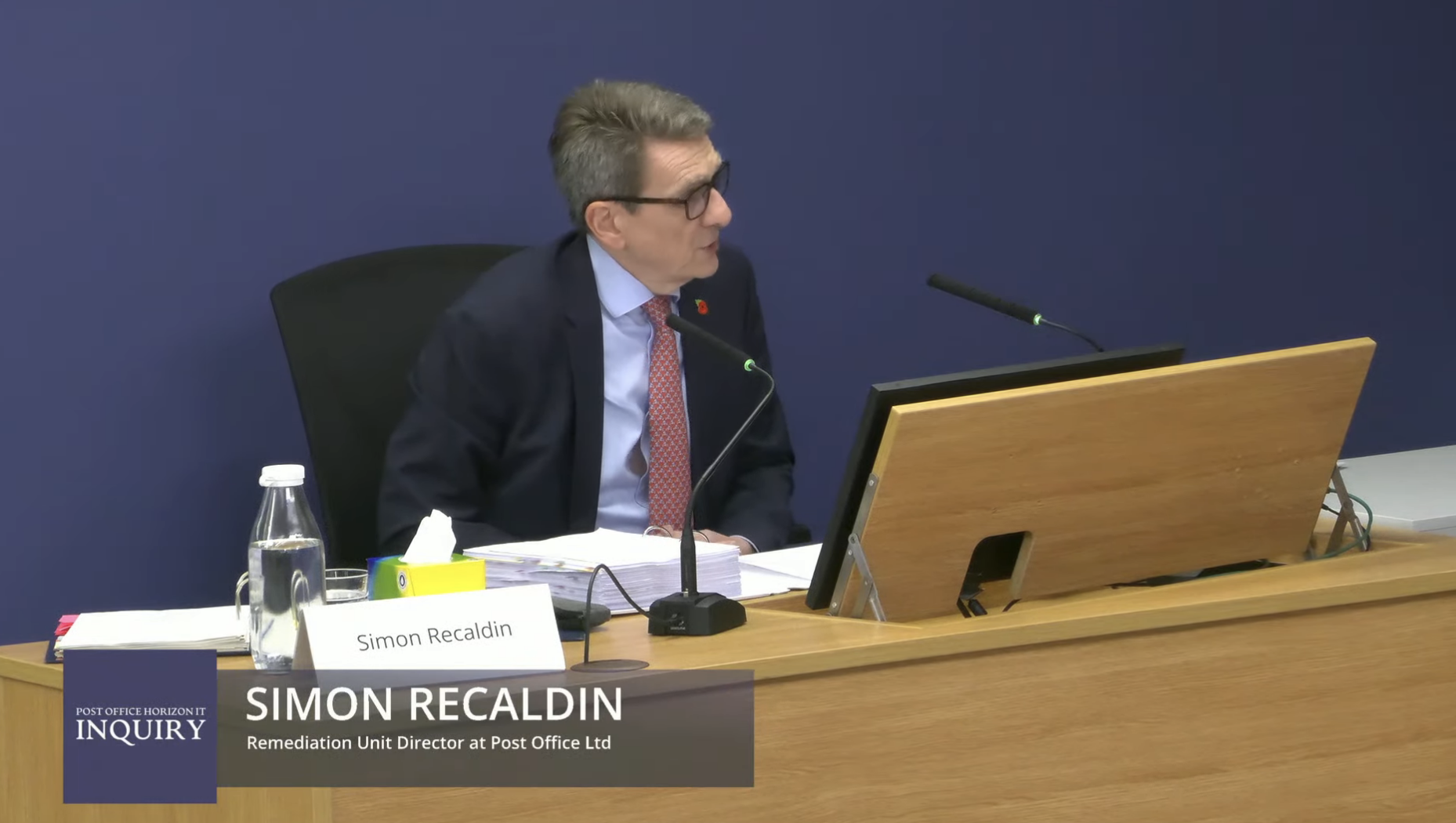 Read More…: Recaldin: Post Office remediation is “Shot to Pieces”
Read More…: Recaldin: Post Office remediation is “Shot to Pieces”Simon Recaldin is the director of the Post Office remediation unit. He is also the last Post Office person to give evidence to the Inquiry. I sincerely hope one day he agrees to be interviewed by a journalist because the imprecision of some of his answers at the Inquiry today were maddening. This morning, Recaldin was taken to an email chain started on 1 Dec 2023 in which he congratulated a large number of Post Office people for having issued “the last HSS [Horizon Scandal Scheme] offer from the original cohort” of applicants. The Horizon Scandal Scheme (initially called the…
-
Simon Recaldin: The Process Gnome
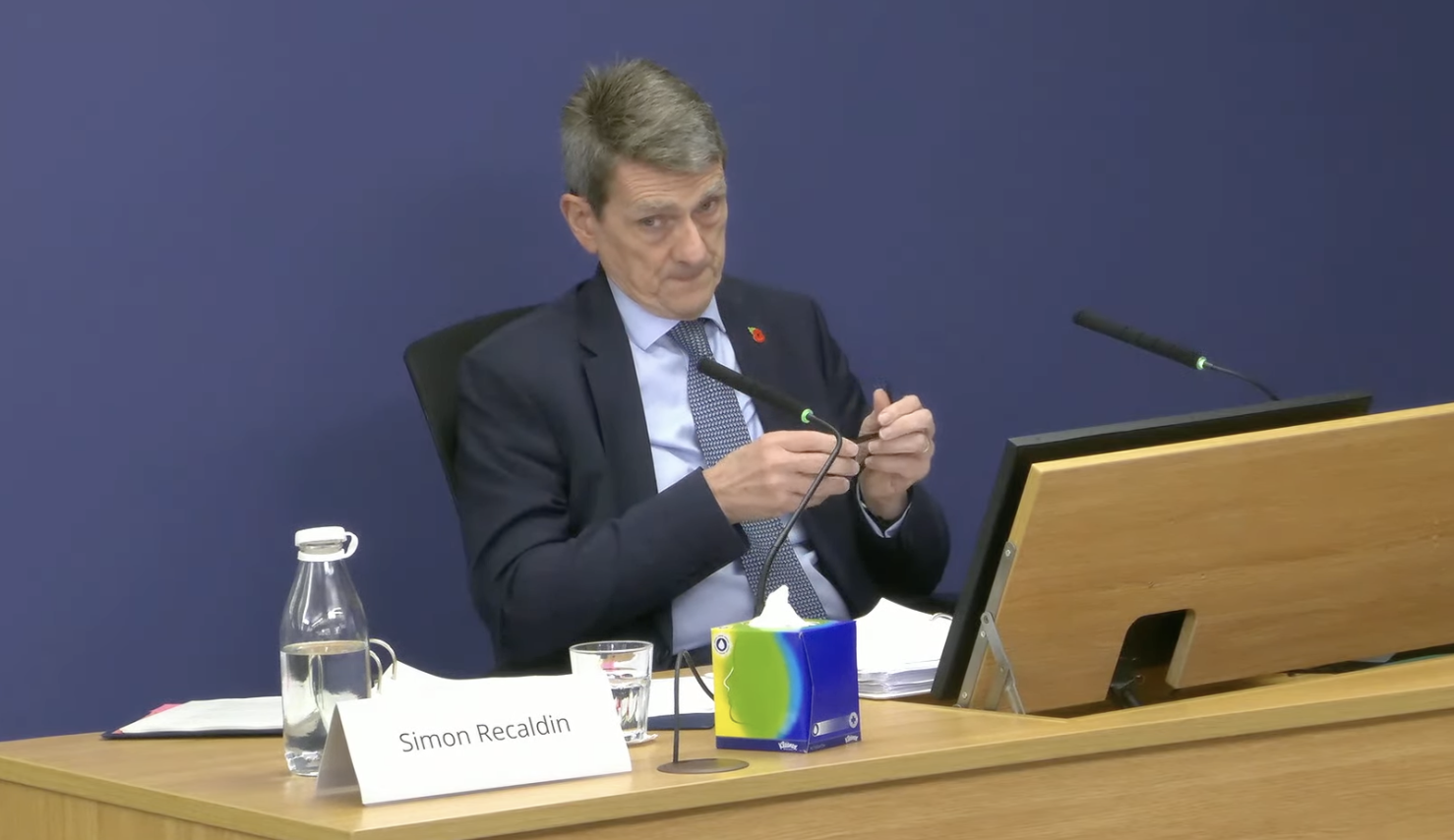 Read More…: Simon Recaldin: The Process Gnome
Read More…: Simon Recaldin: The Process GnomeSimon Recaldin is both in charge of the Post Office’s remediation approach and wholly at the whim of it. He claims he is trying his damnedest to get compensation to Subpostmasters post-haste whilst also agreeing the whole process takes too long. “Could it be quicker? Could it be more efficient?” he asked the Inquiry at one point, answering: “Yes, and that’s what we try to do continuously and we will continue to do that.“ It seems the Post Office has been an unwitting victim of its own malfeasance. In perpetrating what Mr Recaldin thrice called “the biggest miscarriage of justice…
-
Independent board demands quashing of ‘Capture Convictions’
 Read More…: Independent board demands quashing of ‘Capture Convictions’
Read More…: Independent board demands quashing of ‘Capture Convictions’UPDATE: A government spokesperson has today [25 October 2024] issued the following statement in response to the HCAB’s letter: “The Post Office Offences Act 2024 was a truly exceptional response to unprecedented circumstances where hundreds of convictions based on evidence from the Horizon system were considered to be unsafe. “The Criminal Cases Review Commission is looking into a small number of convictions which may be based on evidence from the Capture computer system. If they consider that there is a real possibility that these convictions are unsafe, they will be referred to the Court of Appeal.” ORIGINAL POST: The body…
-
Ben Foat: On His Terms
 Read More…: Ben Foat: On His Terms
Read More…: Ben Foat: On His TermsWhat a difference a bit of time off makes. The last time Ben Foat was questioned by the Inquiry, he looked like a rabbit in the headlights, nervously surveying the mess he’d made of the Post Office’s disclosure responsibilities. Today Foat gave evidence from a remote location, having declined to turn up in person, due to his ill-health. He also dictated the format of the Inquiry’s questioning, requiring a fifteen minute break after each hour of evidence. Foat was calm, composed, helpful and clearly had enough time to look at the documents presented to him by the Inquiry to build…
-
It’s Mike’s World. We just live in it.
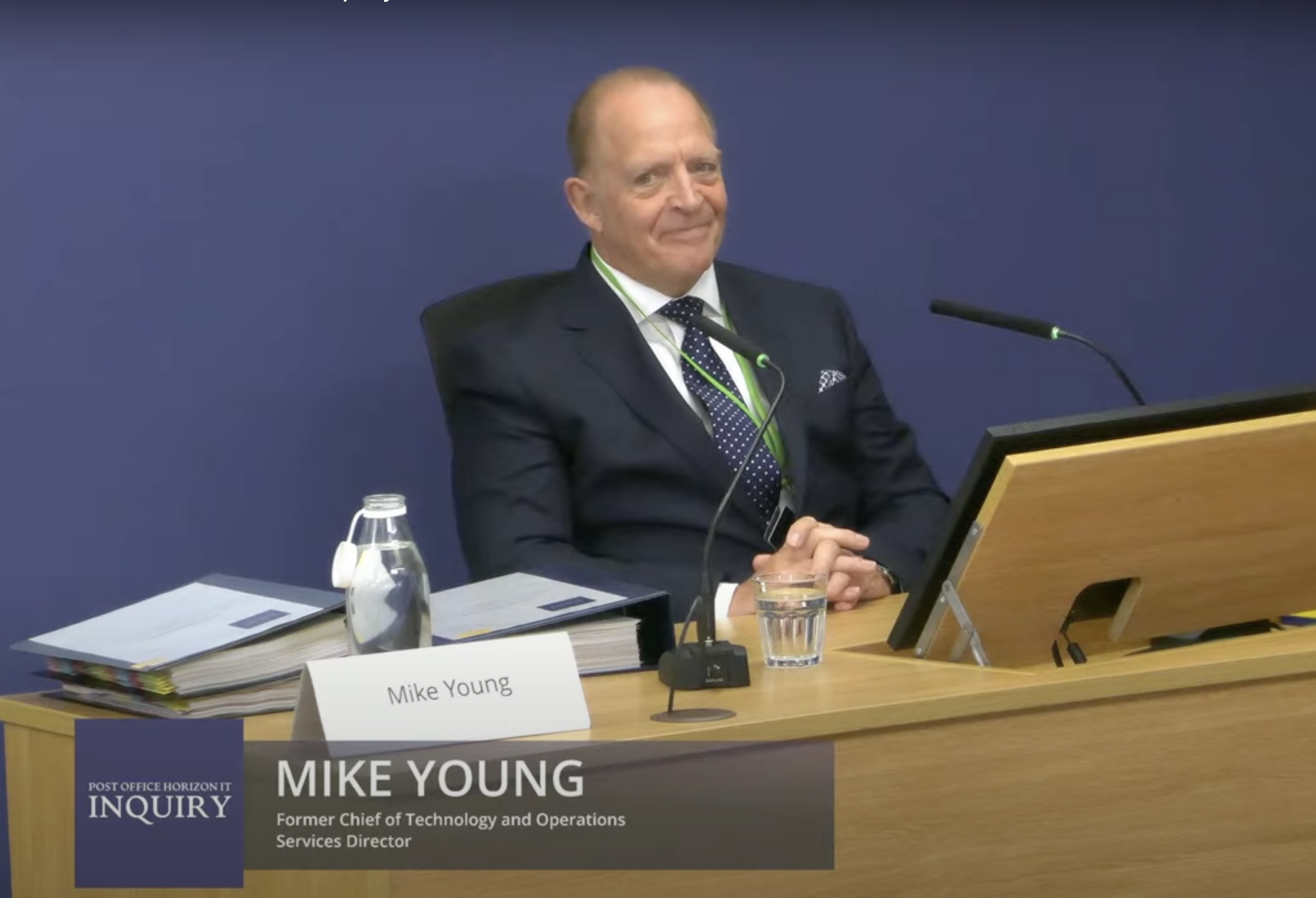 Read More…: It’s Mike’s World. We just live in it.
Read More…: It’s Mike’s World. We just live in it.It seems like we’ve got the Post Office scandal all wrong. The moment in 2012 the Post Office caved and finally agreed to get independent investigators Second Sight into the building was nothing to do with the campaign by MPs and Alan Bates’ Justice for Subpostmasters Alliance. It was, in fact, all down to the Post Office’s heroic Chief Operating Officer, “Missing” Mike Young. When the former army soldier-turned police officer joined the Post Office as Operations Director in 2008 he had responsibility for the Security Division, which spent its time conducting inept investigations whilst recommending the prosecution of innocent…
-
Post Office misleads public inquiry over compensation
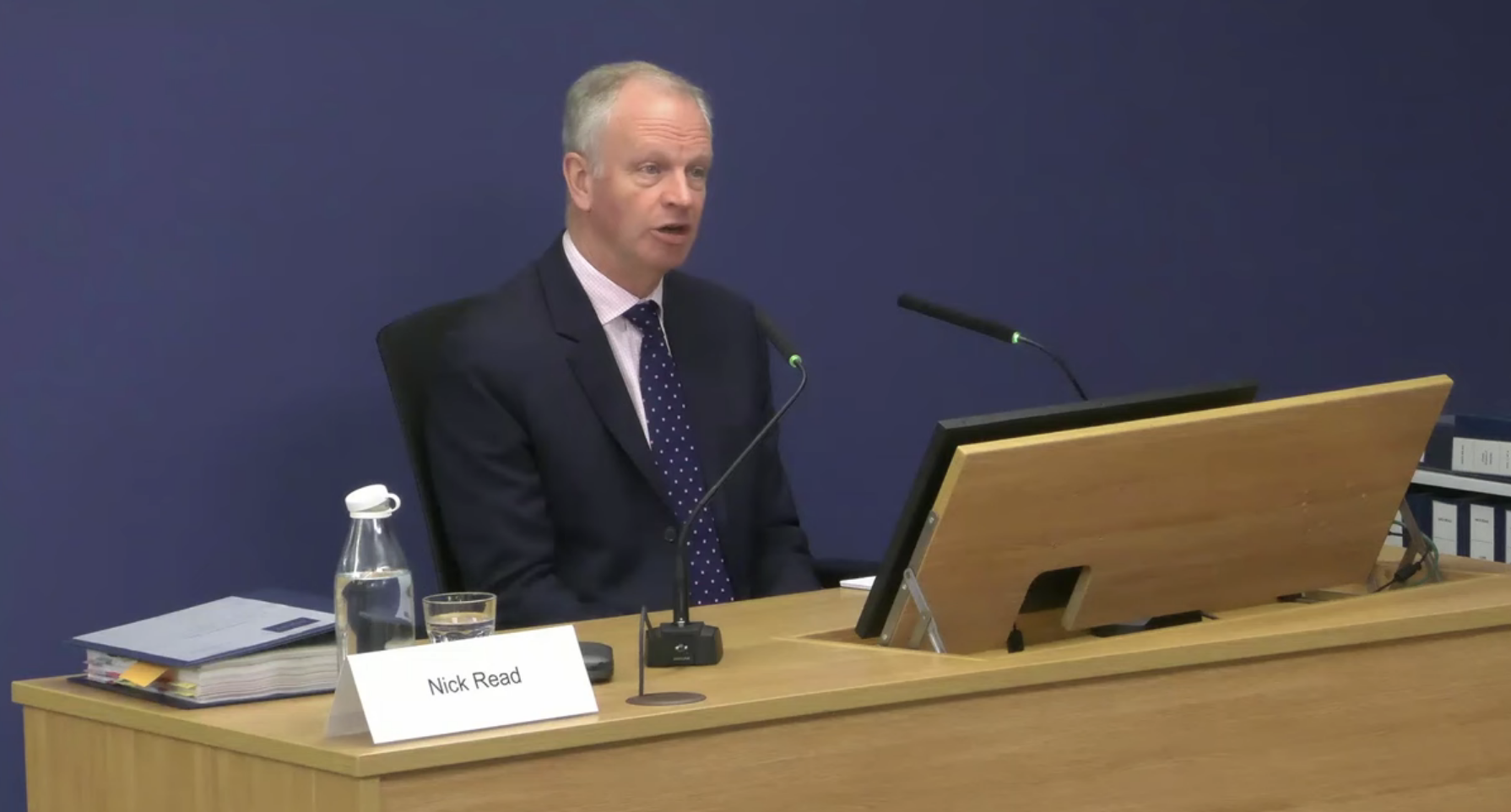 Read More…: Post Office misleads public inquiry over compensation
Read More…: Post Office misleads public inquiry over compensationThe Post Office Chief Executive has admitted withholding important information from the Post Office Horizon IT Inquiry. The revelation came right at the beginning of the second day of Post Office Chief Executive Nick Read’s testimony to the Inquiry, but related to a comment he made on the first. On Wednesday Read had told Jason Beer KC (counsel for the Inquiry) that the only reason the Post Office were involved in any of the Subpostmaster compensation schemes was because the government “were of the opinion that the chaos – I think was the word that was used – had been…
-
The Untouchables: someone’s lying
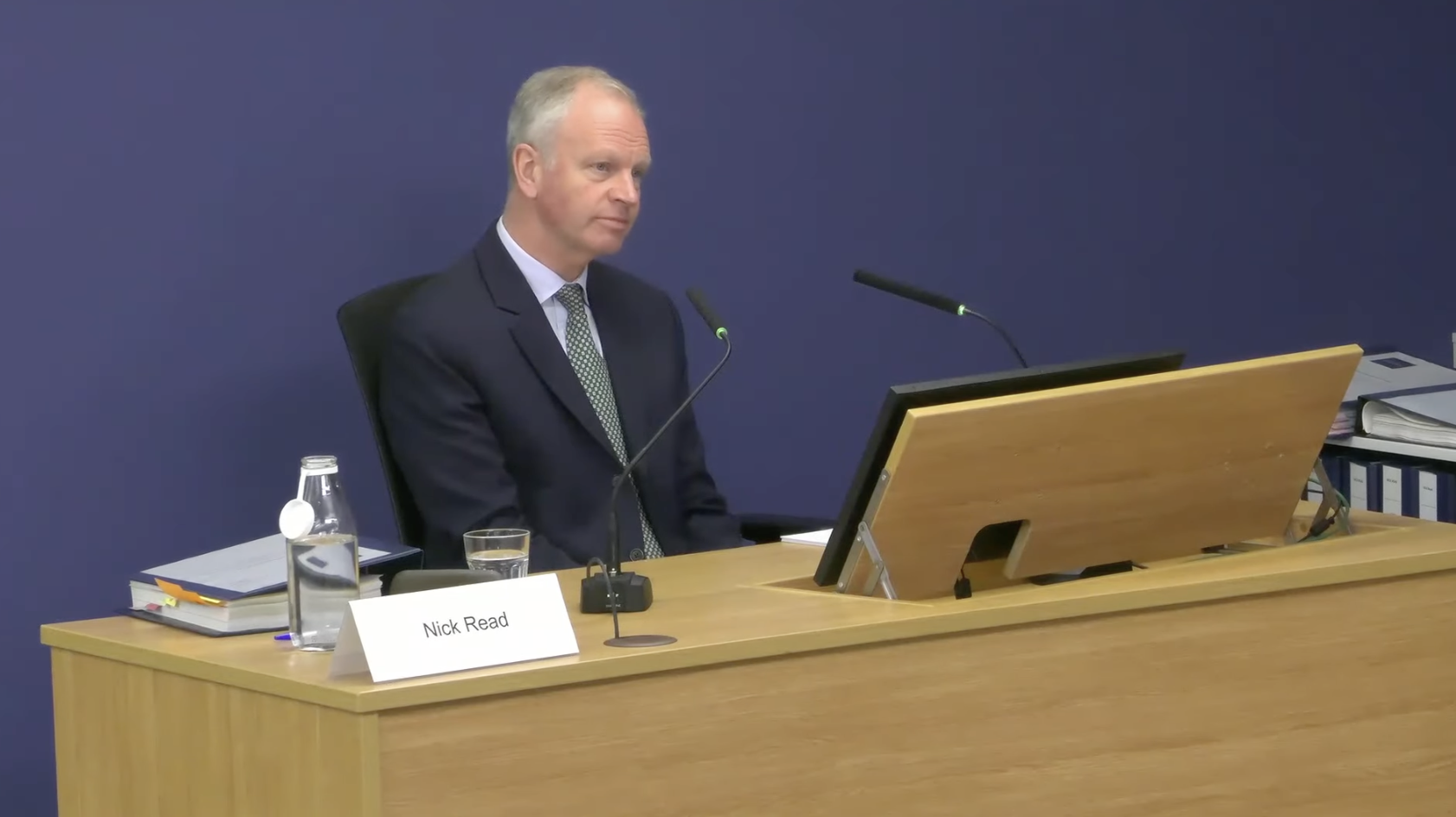 Read More…: The Untouchables: someone’s lying
Read More…: The Untouchables: someone’s lyingIt’s only a minor point, but it speaks to integrity, so I’m going to make it. Nick Read – current Post Office chief executive – has been “accused” of describing certain people within the organisation as “untouchables”. During his first day of evidence to the Post Office Horizon IT Inquiry Read denied using the term, despite senior people within the Post Office claiming they heard him use it more than once. This is the exchange between Read and Jason Beer KC, who was asking the questions on behalf of the Inquiry: JB: Have you ever referred to […] people as…
Archives
- ▼2026
Most Popular
Tags
Alan Bates alice perkins Andrew Winn Andy Dunks Andy Parsons angela van den bogerd Bates v Post Office BBC Bonusgate CCRC Chris Aujard Chris Head Clarke Advice DBT False Accounts Fujitsu Gareth Jenkins Grabiner HCAB Horizon Hugh Flemington Inquiry Interim Report Janet Skinner Jarnail Singh Kevin Hollinrake Lee Castleton Lord Arbuthnot Neuberger Nicki Arch Nick Read Noel Thomas Paula Vennells Paul Marshall Post Office Receipts and Payments mismatch bug Rob Wilson Rod Ismay Rodric Williams Second Sight Seema Misra ShEx Simon Clarke Susan Crichton Tracy Felstead
Categories
- Appeals (19)
- Blog (17)
- Book (11)
- Civil litigation (49)
- Compensation (44)
- Corporate (23)
- Fujitsu (34)
- Inquiry (121)
- IT (40)
- Live Events (6)
- Podcast (7)
- Police investigation (13)
- Prosecutions (48)
